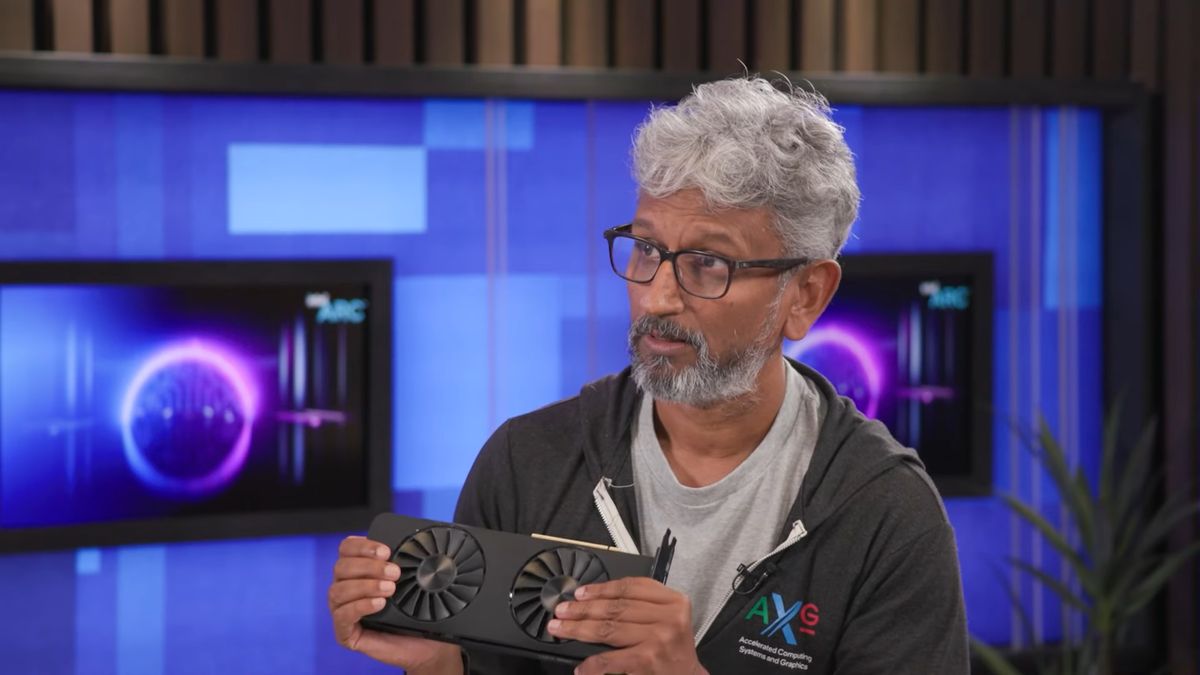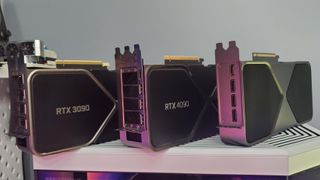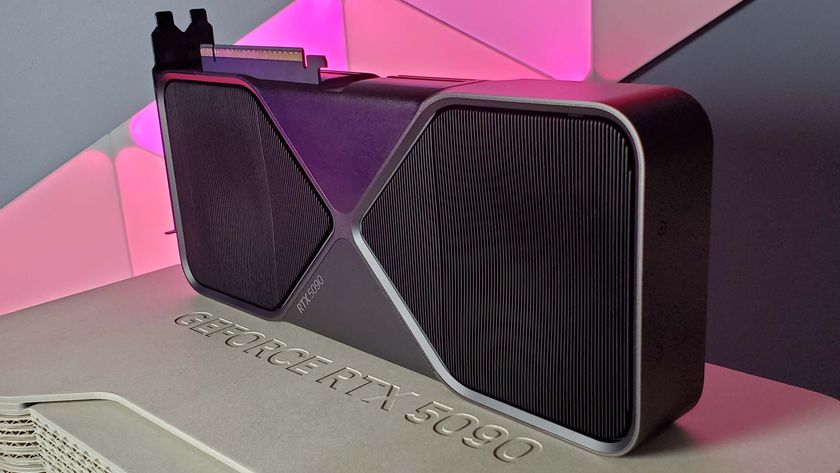Ex-Intel exec, Raja Koduri, blames the bureaucratic 'Powerpoint snakes' within the company for its current issues: 'These processes multiply and coil around engineers'
Such processes, he says, are "constraining their ability to execute on the product roadmap with the boldness it requires'."

Raja Koduri, the former chief architect and executive vice president of Intel's architecture, graphics and software division, has written an X article outlining his thoughts on the troubled waters Intel currently finds itself in. In his piece, he highlights Intel's current "treasures and snakes" and what he believes is the way forward for the company. Essentially, as he sums up in an accompanying tweet, "You don't learn when you don't ship."
Intel's treasures, according to Koduri, are its IP and technology, with many innovations left "sitting on shelf." The contrasting snakes, however, are defined as the bureaucratic process that Koruri sees as dominating corporate decision making, leaving innovation behind.
"They optimize for minimizing quarterly losses while missing the bigger picture. These processes multiply and coil around engineers, constraining their ability to execute on the product roadmap with the boldness it requires.
"A climate of fear surrounds any attempt at skunkworks initiatives outside established processes—one misstep, and the bureaucratic snakes strike. This environment has bred a pervasive 'learned helplessness' throughout the engineering ranks, stifling the very innovation culture that built Intel's empire."
That's certainly some evocative imagery. The piece itself is accompanied by an AI-generated image showing an Intel coder being quite literally strangled by snakes labelled "coordinators" while an exec looks on. Another figure in the background has the word "Zombies" written on his forehead.
Under the heading "Let chaos reign and then rein in chaos" (attributed to ex-Intel CEO Andy Grove), Koduri continues:
"Let's dissect this a bit. Why would you let any chaos reign? Isn't all chaos bad? The answer is no. There is good chaos and bad chaos. Good chaos forces you to invent and change.
The biggest gaming news, reviews and hardware deals
Keep up to date with the most important stories and the best deals, as picked by the PC Gamer team.
"Good chaos generally comes in from external events. Bad chaos comes from internal issues. I like to call bad chaos "organizational entropy". This is the higher order bit that decays the efficiency of companies.
"When entropy crosses a certain threshold, the leadership loses control of the company. No amount of executive thrash can fix this situation, until you reduce this entropy."
So again, in essence, poor decision making and internal bureaucratic interference leads to engineers losing the ability to iterate and innovate, and the company goes down the proverbial drain—at least according to Koduri.

He later goes on to provide several "humble suggestions" for whoever next takes up the leadership mantle at Intel after ex-CEO Pat Gelsinger's departure, including increasing the coder to coordinator ratio by a factor of 10, "cancelling the cancel culture" (in this sense, ditching the idea of cancelling products before they release, like Falcon Shores), and re-organising the company around a product leadership architecture.
"Is this all too late?" he opines in the closing paragraphs. Good question. Intel's woes are well documented, and rumours persist that TSMC may be taking control of Intel's chip manufacturing fabs (or potentially a similar arrangement with the involvement of Broadcom), with one engineer calling it "a horrible, demoralizing mistake." The company's Arrow Lake desktop CPUs were poorly received (although seem to be selling well regardless), it still doesn't have a new CEO since Gelsinger's departure, and its "five nodes in four years" roadmap is in tatters.

Best CPU for gaming: The top chips from Intel and AMD.
Best gaming motherboard: The right boards.
Best graphics card: Your perfect pixel-pusher awaits.
Best SSD for gaming: Get into the game ahead of the rest.
Still, its 18A node now appears to be ready for action, existing Lunar Lake mobile chips are impressive, and its next-gen Panther Lake chip (manufactured on the aforementioned 18A node) is set to launch in the second half of this year. Despite all the criticism surrounding it, Intel appears to be hanging on for now, with long-awaited processes and products in the pipeline. Koduri is not the first former executive to openly analyse and debate Intel's perceived missteps, and even Bill Gates has weighed in with his opinion.
I wonder if Intel views the real snakes here as those surrounding its ongoing troubles, taking the occasional bite at its ankles as it struggles on its feet. That's the trouble with metaphors, you see. They can be open to interpretation. Or, as Koduri points out at the end of his piece, quoting the great philosopher emperor, Marcus Aurelius:
"Everything we hear is an opinion, not a fact. Everything we see is a perspective, not the truth.”
Err, quite.

Andy built his first gaming PC at the tender age of 12, when IDE cables were a thing and high resolution wasn't—and he hasn't stopped since. Now working as a hardware writer for PC Gamer, Andy's been jumping around the world attending product launches and trade shows, all the while reviewing every bit of PC hardware he can get his hands on. You name it, if it's interesting hardware he'll write words about it, with opinions and everything.
Most Popular




